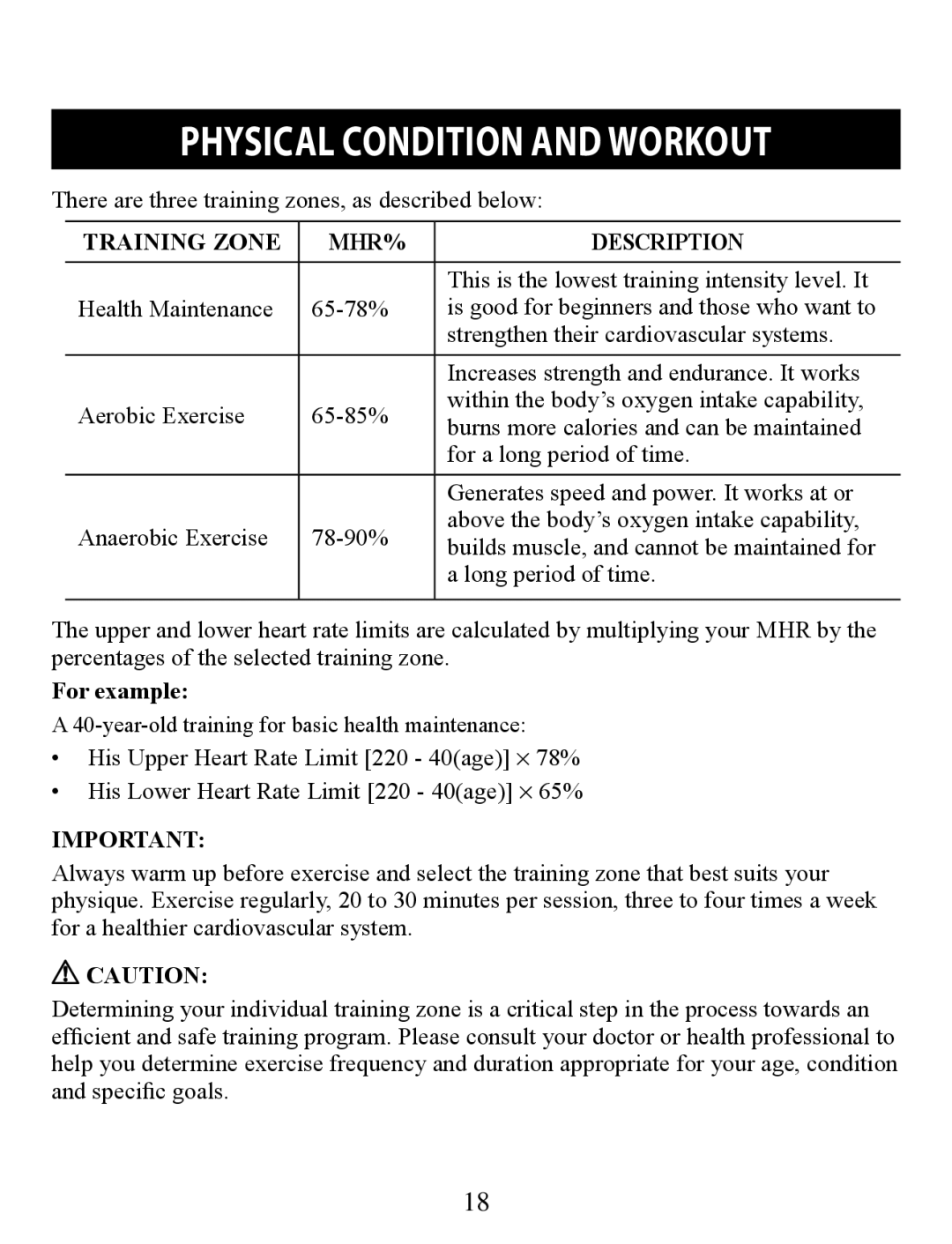physical condition and workout
There are three training zones, as described below:
TRAINING ZONE | MHR% | DESCRIPTION | |
|
|
| |
|
| This is the lowest training intensity level. It | |
Health Maintenance | is good for beginners and those who want to | ||
|
| strengthen their cardiovascular systems. | |
|
| Increases strength and endurance. It works | |
Aerobic Exercise | within the body’s oxygen intake capability, | ||
burns more calories and can be maintained | |||
|
| ||
|
| for a long period of time. | |
|
|
| |
|
| Generates speed and power. It works at or | |
Anaerobic Exercise | above the body’s oxygen intake capability, | ||
builds muscle, and cannot be maintained for | |||
|
| a long period of time. | |
|
|
|
The upper and lower heart rate limits are calculated by multiplying your MHR by the percentages of the selected training zone.
For example:
A
•His Upper Heart Rate Limit [220 - 40(age)] × 78%
•His Lower Heart Rate Limit [220 - 40(age)] × 65%
IMPORTANT:
Always warm up before exercise and select the training zone that best suits your physique. Exercise regularly, 20 to 30 minutes per session, three to four times a week for a healthier cardiovascular system.
![]() CAUTION:
CAUTION:
Determining your individual training zone is a critical step in the process towards an efficient and safe training program. Please consult your doctor or health professional to help you determine exercise frequency and duration appropriate for your age, condition and specific goals.
18
